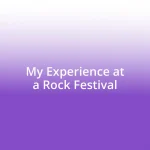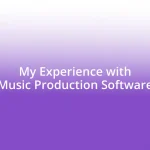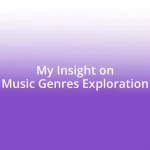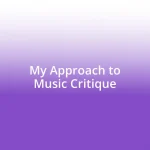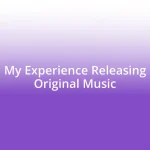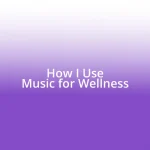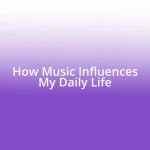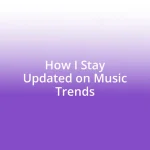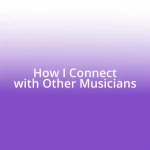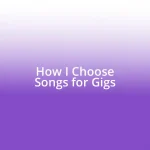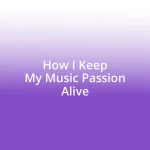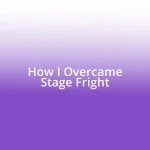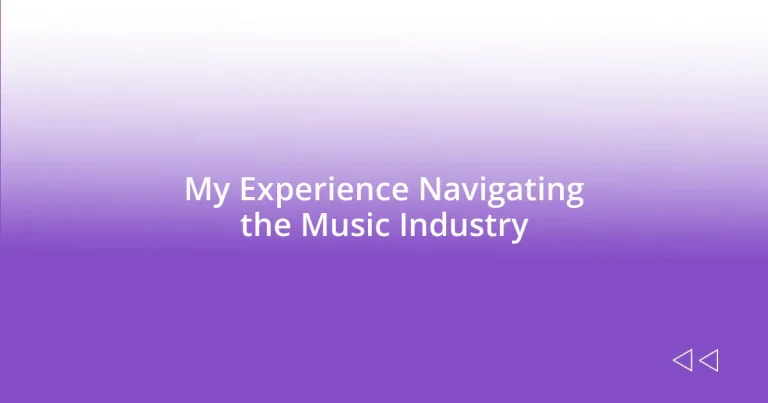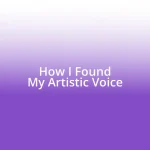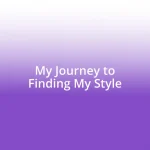Key takeaways:
- Preparation is crucial; early challenges in performance emphasized the importance of being well-prepared.
- Building genuine connections in the industry requires vulnerability and authenticity, rather than a polished persona.
- Utilizing a multi-faceted approach for music promotion, including social media and email marketing, fosters stronger audience engagement.
- Understanding contracts thoroughly and maintaining open communication are key to navigating the complexities of the music industry.
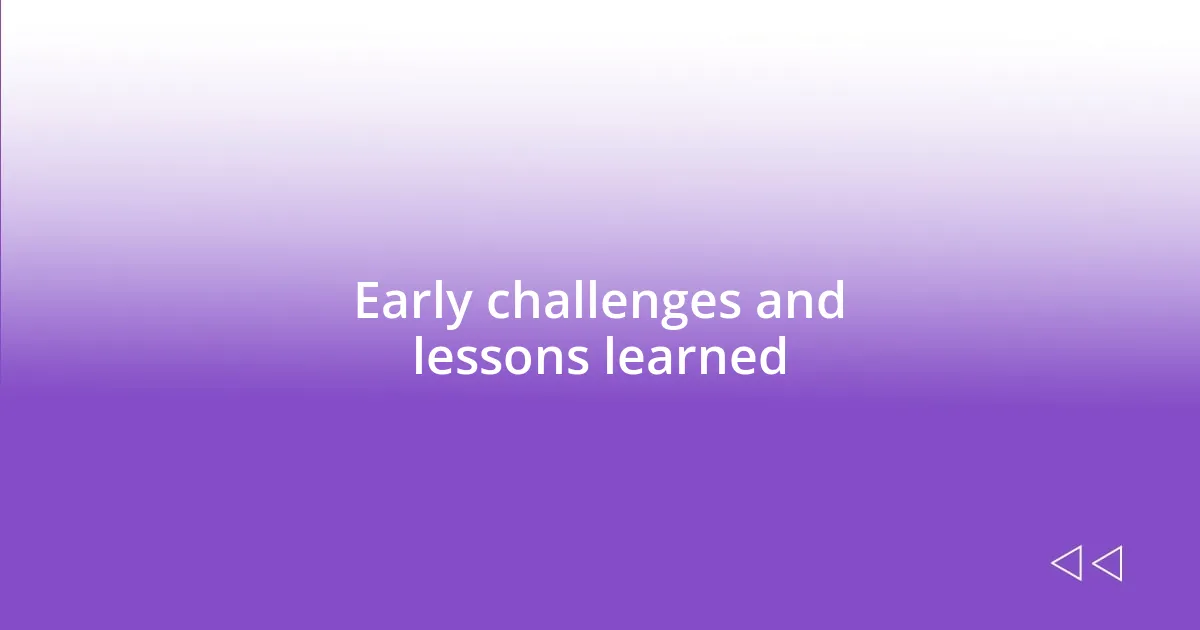
Early challenges and lessons learned
Navigating the music industry at the onset was like stepping into a whirlwind; I often found myself overwhelmed. My first challenge came during a gig where I realized I had drastically underestimated my setlist’s difficulty. The nerves kicked in as I fumbled through the notes—how many times have I learned the importance of preparation the hard way?
Another hurdle was building connections. I recall attending my first music conference, feeling like an outsider among seasoned professionals. It was daunting to network without feeling like a phony! Yet, I learned that authenticity shines brighter than a polished persona. I still remember the warmth of a seasoned producer who shared his journey, and it hit me: vulnerability can foster real connections.
Lastly, I faced criticism that stung more than I expected. One reviewer chastised my early work, and it felt like being stripped bare. But here’s what I discovered—feedback is a tool for growth, not a setback. It taught me resilience, and I realized that each critique could be a stepping stone toward refining my craft. Have you ever faced something that seemed like a setback but turned out to be a blessing in disguise? For me, those lessons paved the way to becoming a more determined artist.
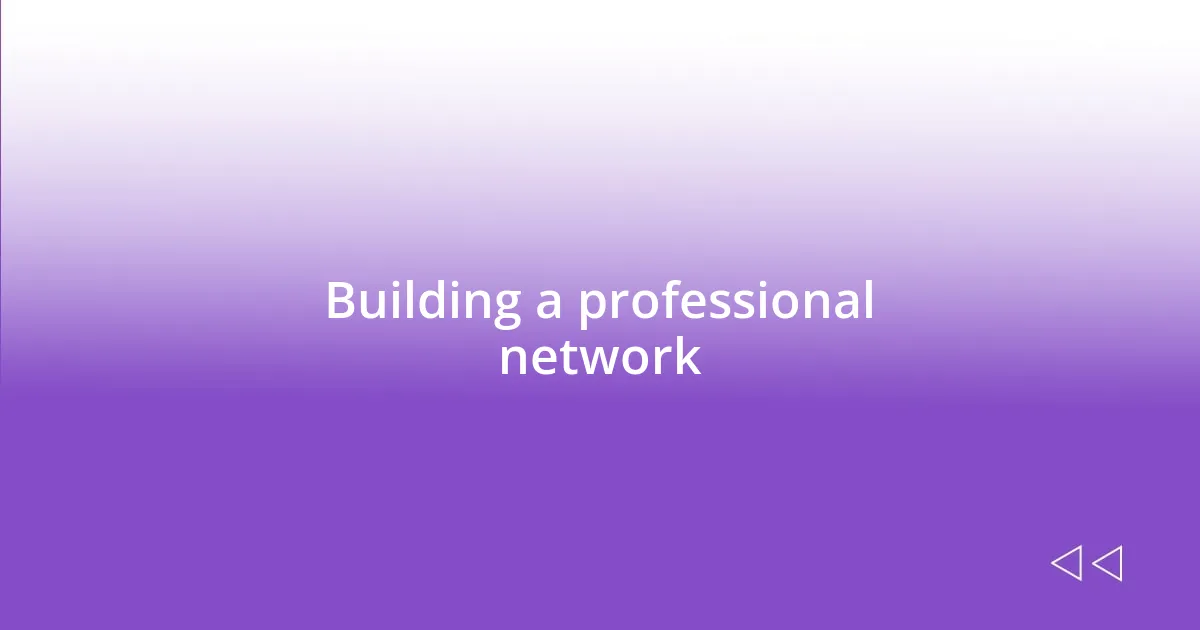
Building a professional network
Building a professional network in the music industry can feel like a daunting task, but I’ve found it to be one of the most rewarding aspects of my journey. Early on, I made it a point to attend local open mics and workshops. It was intimidating at first; I remember nervously introducing myself to fellow musicians and industry professionals, wondering if they’d even care to hear my story. But the more I embraced those moments, the more I realized each conversation could open doors I never imagined.
Here are some strategies that worked for me:
- Attend Workshops and Conferences: These gatherings are goldmines for meeting like-minded individuals and industry insiders.
- Social Media Engagement: I began sharing my journey on platforms like Instagram, connecting with artists and producers who resonated with my work.
- Follow Up: After meeting someone, I always made it a point to send a message or email just to say hi and express my gratitude. Those small gestures often led to deeper connections.
- Collaborate on Projects: Working together not only nurtures creativity but builds trust and camaraderie within the industry.
Networking isn’t just about collecting contacts; it’s about building relationships that thrive on authenticity and mutual support. Each interaction left me with a little more confidence and a sense of belonging, gradually transforming my perspective from an outsider to part of a vibrant community.
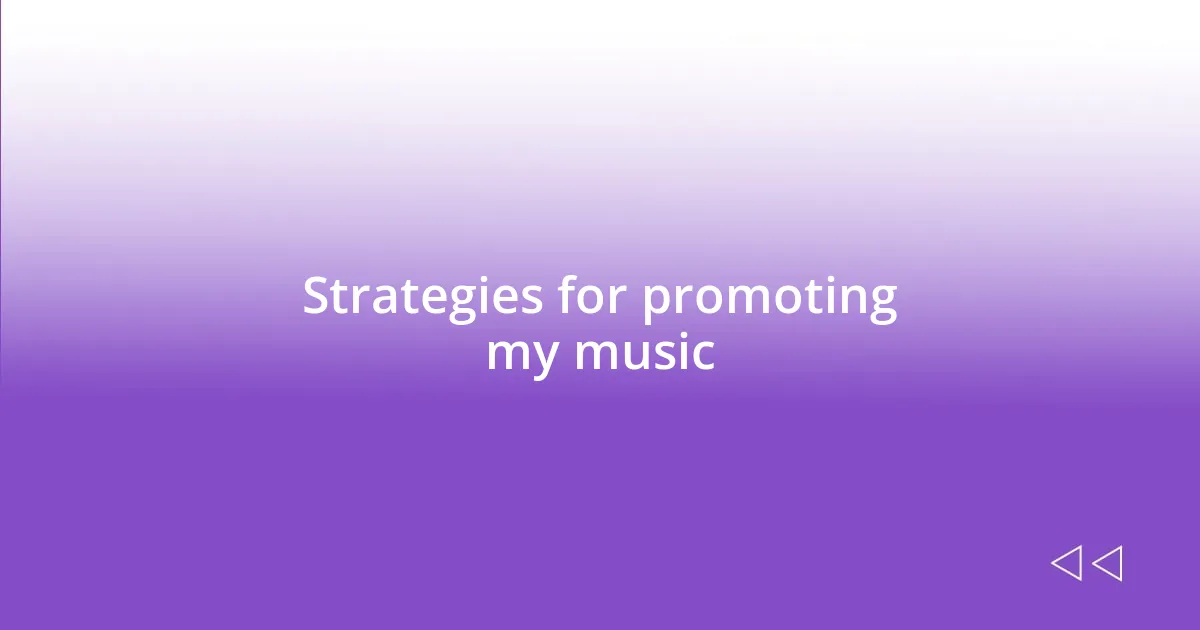
Strategies for promoting my music
When it comes to promoting my music, I’ve found that a multi-faceted approach works wonders. Social media has been vital for my visibility. I initially felt hesitant to share my music online, fearing judgment, but then I realized that vulnerability could resonate with others. I recall posting an acoustic cover of one of my original songs; the feedback I received was unexpected and uplifting—it fueled my desire to create more. Now, I actively engage with my audience, asking for their opinions on new tracks, which not only builds a stronger connection but also makes them feel involved in my journey.
Email marketing is another powerful tool I’ve tapped into. I started collecting email addresses at shows and through my website. I remember the first time I sent out a newsletter; I was nervous. Would anyone even care? To my surprise, the response was positive—people wanted to know about my upcoming gigs, releases, and behind-the-scenes content. Personalizing those emails helps me foster a sense of community. I often share personal stories that relate to my music, whether it’s the inspiration behind a song or a memorable concert experience. It’s rewarding to have that direct connection with fans.
Lastly, collaborating with other artists has been a game-changer. By teaming up on projects with musicians I admire, I’ve not just expanded my creative horizons but reached new audiences. The first time I collaborated, I felt a mix of excitement and anxiety; I couldn’t believe another artist would want to work with me. That song turned out to be one of my favorites, showcasing our unique styles. The blend of our fan bases allowed us to cross-promote effectively, amplifying our reach. Each successful collaboration reminds me of the power of unity in artistry.
| Strategy | Description |
|---|---|
| Social Media Engagement | Sharing music and updates with audiences, building relationships, and receiving feedback to create a sense of community. |
| Email Marketing | Collecting addresses to send personalized newsletters about upcoming releases and stories, fostering direct connections with fans. |
| Collaboration | Teaming up with other artists to create new music and cross-promote, expanding reach and creative perspectives. |
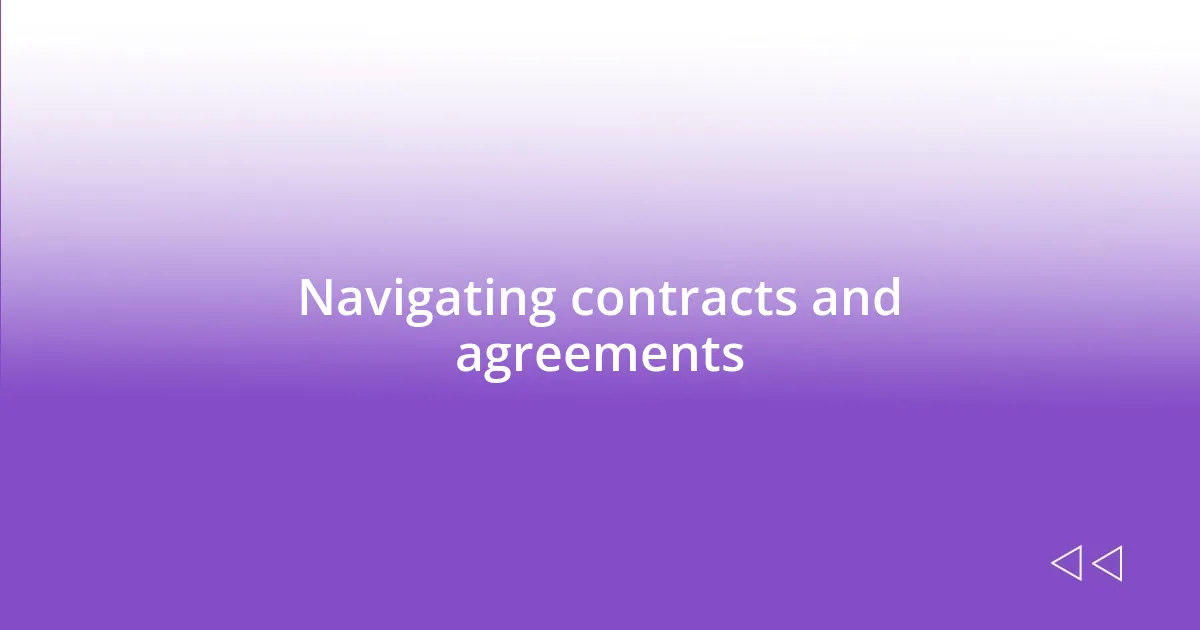
Navigating contracts and agreements
Navigating contracts in the music industry can feel like traversing a minefield. I still remember the first contract I ever signed—my heart raced as I skimmed through the jargon. I had a gut feeling something was off, but I was eager to “seal the deal.” It wasn’t until my mentor dissected it with me that I learned the importance of understanding every clause, from performance rights to royalty splits. Have you ever felt pressured to sign quickly? It’s a common pitfall; take your time.
As I’ve gained experience, I’ve learned to treat contracts not just as documents, but as blueprints of my career. When a label presented me with an agreement, I felt a mix of excitement and fear. What if I missed something critical? So, I started asking questions. What’s the duration of the contract? How will changes in ownership affect me? The more knowledgeable I became, the better I could negotiate terms. I realized that transparency fosters trust; a mutual understanding ensures a partnership rather than a transaction.
Every agreement is a chance to define how I want my artistry to unfold. I once faced a potential conflict over merchandising rights, as I had this vision for my brand. By approaching the conversation collaboratively and presenting my ideas, we reached a solution beneficial for both parties. It taught me that navigating contracts is as much about communication and relationship-building as it is about the legalities on paper. Wouldn’t you agree that clarity and open dialogue can save a lot of unnecessary heartache down the road?
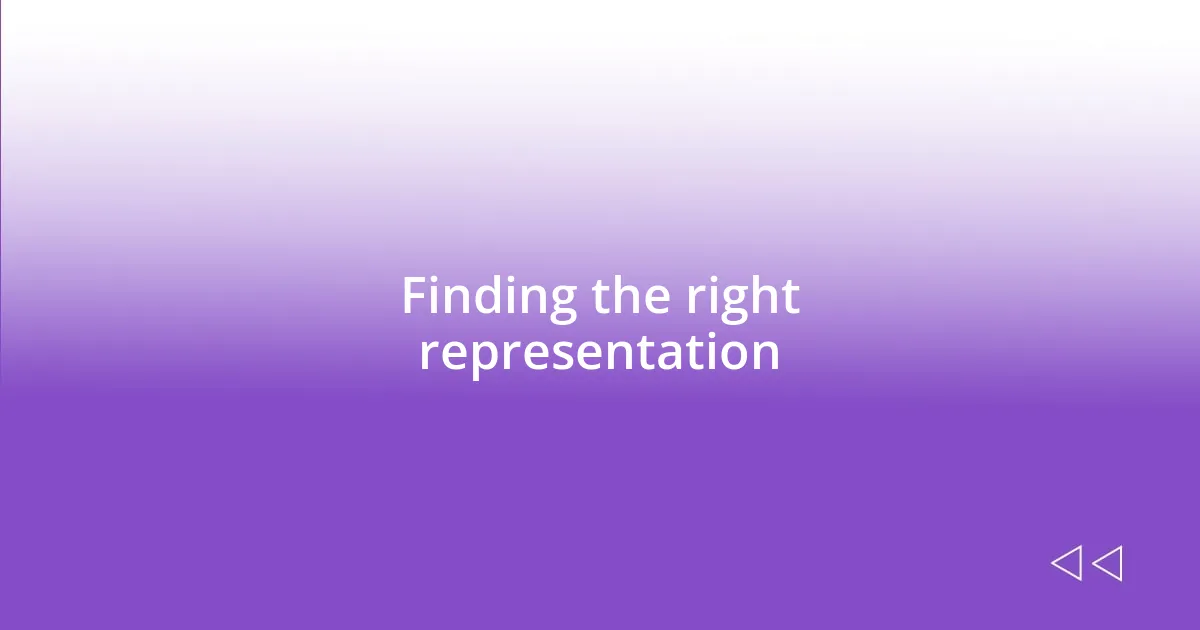
Finding the right representation
Finding the right representation in the music industry can feel like searching for a needle in a haystack. I remember attending various industry events, hoping to connect with that special someone who truly understood my vision. At one point, I met a manager who seemed excited about my music, but as discussions progressed, it became clear their priorities lay elsewhere. Has anyone else felt that disconnect? It taught me the importance of finding someone who shares your artistic goals rather than simply seeking a client.
As I reflected on my journey, I realized that maintaining open communication is key. When I finally found a manager who resonated with my music and values, I felt an instant sense of relief. In our first meeting, we dug deep into my aspirations, discussing not just my music but the type of relationship I wanted with my fans and where I saw myself in five years. I felt heard for the first time. Have you ever experienced that “Aha” moment with someone? It can make a world of difference in building a supportive team around you.
Ultimately, it’s about trust. I recall questioning my decision to sign with a particular agent, as their initial enthusiasm faded after a few months. I learned to trust my instincts; it’s essential to feel confident that your representation prioritizes your artistic growth. In this industry, finding the right representation isn’t just about contracts and accolades; it’s about cultivating a genuine partnership that motivates you to keep creating. After all, wouldn’t you want someone who believes wholeheartedly in your vision by your side?
